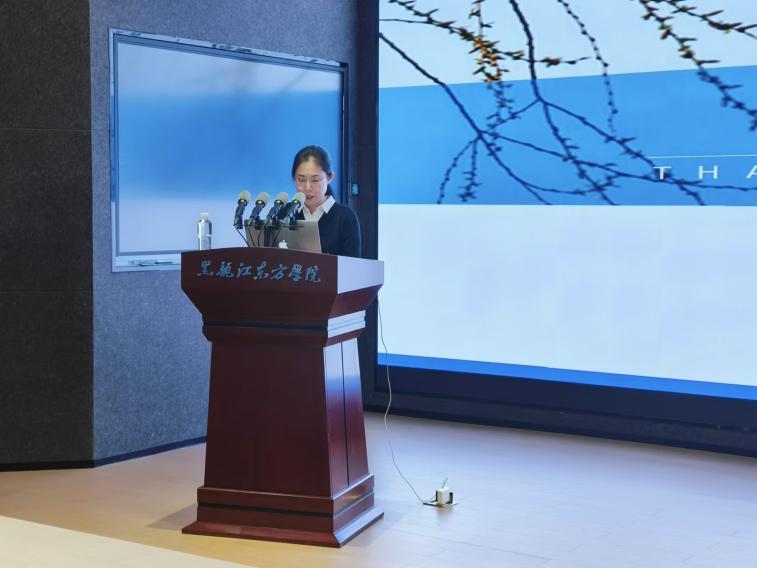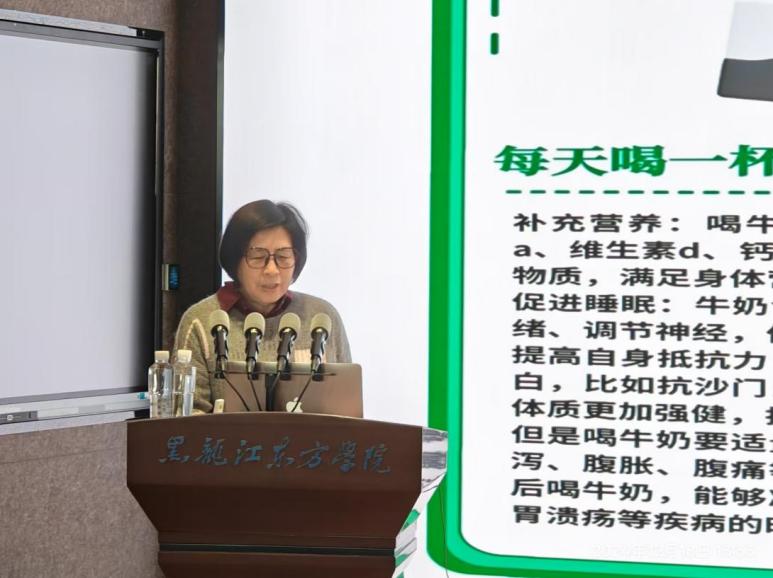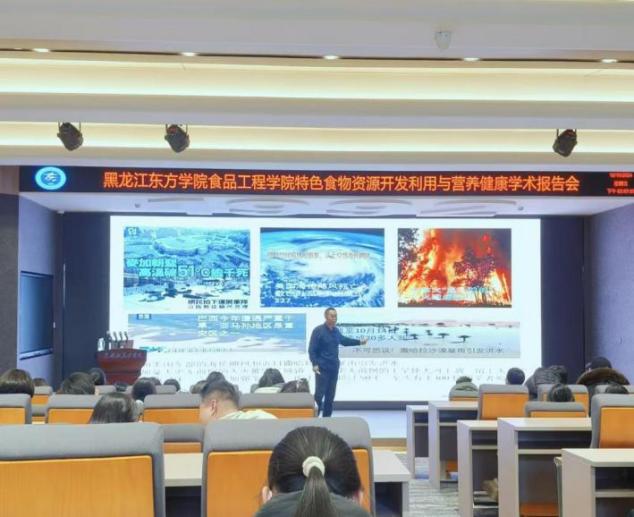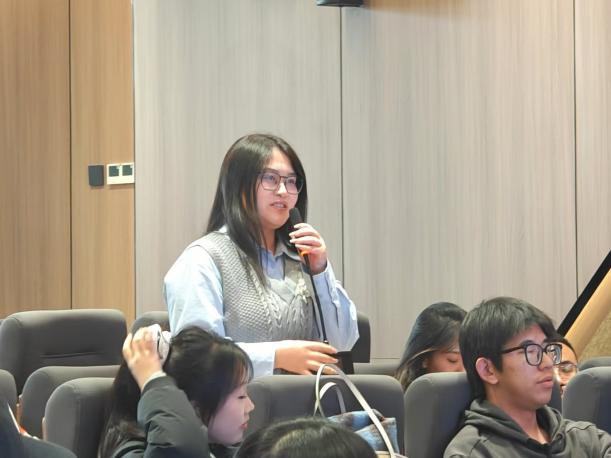The "Academic Report on the Development and Utilization of Characteristic Food Resources and Nutritional Health of the School of Food Engineering, East University of Heilongjiang" hosted by the School of Food Engineering of East University of Heilongjiang was successfully held in Room 110 of the Main Teaching Building on December 18, 2024. Professor Ping Wenxiang from the School of Life Sciences of Heilongjiang University and Professor Ma Ying from the School of Medicine and Health of Harbin Institute of Technology gave academic reports respectively.

The academic report was presided over by Zhao Jing, Vice Dean of the School of Food Engineering.
Professor Ma Ying delivered a report themed "Nutrition and Health of Milk Proteins". She introduced the composition and content of milk proteins, as well as their relationship with nutrition and health. A detailed account was given of the functional activities of whey proteins: the role of whey protein and α-lactalbumin in body weight control, the weight-loss effect of WPI (whey protein isolate) and α-La on obese mice, the prevention and treatment of hyperuricemia by whey protein, the repair and regeneration effects of milk-derived MFG-E8 on skeletal muscles in sarcopenic rats, the preventive effect of milk-derived MFG-E8 on Alzheimer's disease, and the use of κ-casein glycomacropeptide to control appetite for weight loss. These contents provided the audience with a clearer understanding of milk proteins.

Professor Ping Wenxiang's report was titled "Sustainability of Bioenergy and Environment". He pointed out that with the depletion of fossil energy and the increasing severity of environmental problems, microalgae, as a renewable clean energy source, possess enormous development potential. Professor Ping Wenxiang elaborated on the advantages of microalgae as third-generation bioenergy, including strong carbon sequestration capacity, high photosynthetic efficiency, rapid growth, high oil content, and no competition with crops for land. He also shared his team's latest research achievements in microalgae, such as the discovery of new microalgae species and the screening of high-quality algal strains. The report content closely aligned with the theme of the times, demonstrating the cutting-edge developments and broad application prospects of microalgae research for teachers and students.

In the interactive session, teachers and students actively asked questions and engaged in lively discussions with the two professors on related issues in the reports. The professors patiently answered the questions, and their professional insights and rich experience benefited the teachers and students greatly.

The academic report was attended by 100 people in total, including Zhang Yun, the dean of the School of Food Engineering, all the faculty members, and postgraduate students. The successful hosting of this academic report provided a platform for the teachers and students of the School of Food Engineering to communicate and learn with experts and scholars, broadened their academic horizons, stimulated their enthusiasm for scientific research, and will play a positive role in promoting the discipline construction and talent cultivation of the college.





